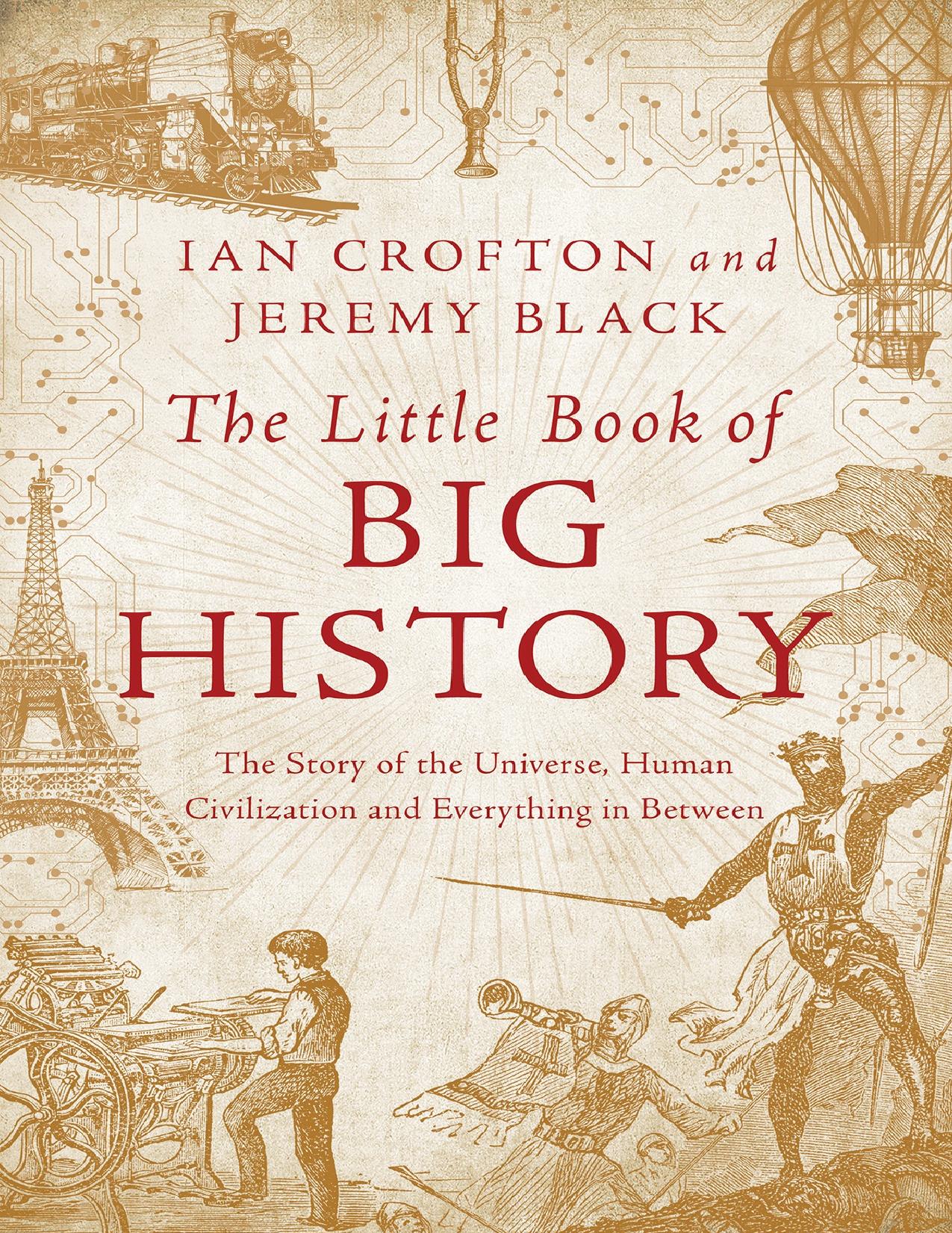The Little Book of Big History by Ian Crofton

Author:Ian Crofton
Language: eng
Format: epub, pdf
Publisher: Pegasus Books
Published: 2017-08-18T04:00:00+00:00
LAND, LABOUR AND POWER
From the early days of settled agricultural societies, control over land was a crucial feature of economics, society and politics in many parts of the world. Its legal and governmental basis varied greatly, but it was force that ultimately ruled.
In the Middle Ages in western Europe, the system now known as feudalism ruled from about the 9th to the 15th century CE. The greater nobles were granted control over their lands in return for military service to the king. Those of lesser rank, such as knights, held theirs in return for military service to the greater nobles. The peasantry farmed, but did not own, their small patches of land in exchange for work performed on the land of their lord. This system – serfdom – was gradually to break down as the payment demanded changed from labour and military service to money, although it persisted in parts of Europe, such as Russia, well into the 19th century.
Other societies around the world had similar systems. Control of the land entailed the control of society and was central to the unequal distribution of wealth. The specific form this took depended on environmental factors and the availability of labour. There were strong contrasts between systems of hierarchy and control where labour was in fairly short supply, as in Africa and eastern Europe, and where it was more plentiful, as in China, India, Japan and western Europe. The former stressed control over labour, the latter control over land. Labour shortages could lead to tighter control, but they could also allow for renegotiations of labour relations that gave more power to the peasantry. In western Europe it was partly the shortage of labour after the Black Death in the 14th century (see here) that enabled peasants to call for money payments and helped to erode the old feudal system.
The labour services owed by the poorest in society varied around the world, depending on the type of economy. What stand out are the major contrasts between pastoral (animal husbandry) and arable (cultivation) systems. Pastoral systems imposed a less rigid work regime, partly owing to greater flexibility in terms of how territory and land was exploited. Arable systems played key roles in east Asia. In North America, different tribes had differing ways of life. Those who were pure hunter-gatherers had no sense of owning particular pieces of land, whereas those settled in arable farming communities had more permanent connections to particular territories.
Until the system collapsed in the mid-18th century, in the remoter Highlands and islands of Scotland the clans were also tribal, and based notionally on family groups, though their origins lay in a relatively lawless period in which local warlords offered protection to families in return for loyalty. Tribal systems tended to rely on a sense of belonging and sustained loyalty among their members, whereas in feudal systems this kind of blood linkage was mostly absent.
This was also true of slave systems, where outsiders (often captured during wars, or traded in special markets) could be forced to work for a particular owner.
Download
The Little Book of Big History by Ian Crofton.pdf
This site does not store any files on its server. We only index and link to content provided by other sites. Please contact the content providers to delete copyright contents if any and email us, we'll remove relevant links or contents immediately.
Tools of Titans by Timothy Ferriss(8370)
Turbulence by E. J. Noyes(8040)
Secrets of Antigravity Propulsion: Tesla, UFOs, and Classified Aerospace Technology by Ph.D. Paul A. Laviolette(5369)
Astrophysics for People in a Hurry by Neil DeGrasse Tyson(5184)
Room 212 by Kate Stewart(5105)
Design of Trajectory Optimization Approach for Space Maneuver Vehicle Skip Entry Problems by Runqi Chai & Al Savvaris & Antonios Tsourdos & Senchun Chai(5066)
Pale Blue Dot by Carl Sagan(4996)
The David Icke Guide to the Global Conspiracy (and how to end it) by David Icke(4709)
A Journey Through Divination and Astronomy by Publishing Pottermore(4382)
Goodbye Paradise(3802)
Apollo 8 by Jeffrey Kluger(3705)
COSMOS by Carl Sagan(3618)
The Five People You Meet in Heaven by Mitch Albom(3562)
Losing the Nobel Prize by Brian Keating(3534)
How to Read Water: Clues and Patterns from Puddles to the Sea (Natural Navigation) by Tristan Gooley(3466)
Brief Answers to the Big Questions by Stephen Hawking(3430)
How to Read Nature by Tristan Gooley(3335)
The Order of Time by Carlo Rovelli(3188)
A Brief History of Time by Stephen Hawking(3022)
